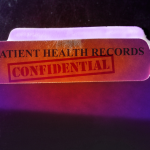
“Marking Up” of Lab Services: Prohibited Under Federal and State Law In Illinois

Both federal and state law contains specific limitations on a physician “marking up” (i.e., add a profit margin to) his/her cost when ordering diagnostic tests that are sent to independent labs. For patients who are covered under federally funded health plans (Medicare, Medicaid, Tricare, etc.), the anti-markup payment limitation will apply if the performing physician does not “share a practice” with the billing physician who ordered the test.
Federal Law:
If the patient is covered under a federally funded plan, the billing physician will be paid for the technical component or professional component of the diagnostic test (less any applicable deductibles or coinsurance) the lowest of:
1) the performing physician’s net charge to the billing physician;
2) the billing physician’s actual charge; or,
3) the Medicare Physician Fee Schedule amount for the test that would be allowed if the performing physician had billed directly.
In other words, the physician is not to add a “profit” component for work that he/she did not perform.
Illinois Law On Pathology Service Markups
A similar provision is found in the Illinois Medical Patient Rights Act, which prohibits marking up lab fees for “anatomic pathology services” for all patients not covered under a federal plan. Although this section is limited to the processing, examination, and diagnosis of surgical specimens by a physician pathologist, it provides best practice guidance for billing any diagnostic service, for the following reasons:
The Medical Practice Act prohibits “gross and willful and continued overcharging” for professional services, which includes billing for services not rendered. The Act and Rules, as well as chiropractic codes of ethics, prohibit unethical, unprofessional conduct, which could include the marking up of a diagnostic or lab charge. Therefore, the ICS recommends that chiropractic physicians follow Medicare guidelines, even for non-Medicare patients, as a matter of professional ethics and standard of care.
Note that this recommendation applies when the physician merely orders a test and does not perform any additional functions related to the test. However, physicians are permitted to charge a specimen acquisition or processing charge for any patient if:
- the charge is limited to actual costs incurred for specimen collection and transportation; and
- the charge is separately coded or denoted as a service distinct from the performance of the anatomic pathology service, according to the American Medical Association CPT® Manual.
The Takeaway
As a chiropractic physician, the legislature has entrusted you to protect your patients’ best interests. Adhering to ethical billing guidelines for services provided validates the trust placed in you by your patients and lawmakers alike.



















